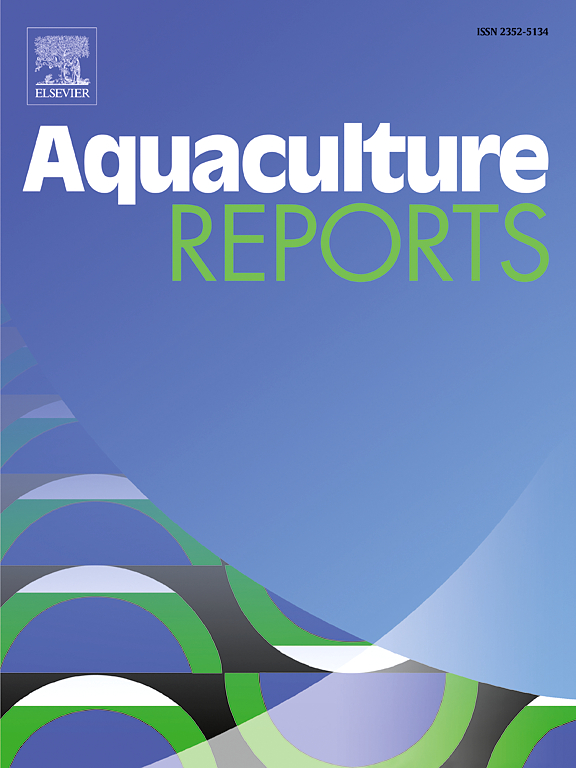Interactions between starvation, cold stress and water velocities on immunological and metabolic responses of large yellow croaker
IF 3.2
2区 农林科学
Q1 FISHERIES
引用次数: 0
Abstract
Research shows that natural starvation during cold months may enhance the croaker's cold tolerance, yet the high mortality rates persist, indicating that factors like water velocity may also play a critical role. This study investigates how low temperature, starvation and water velocities affect the croaker's survival, focusing on antioxidant capacity, metabolic, transcriptomic and microbiota changes, aiming to improve management strategies for this economically important species in aquaculture. 400 large yellow croakers were divided into fed and starved groups to assess cold tolerance under gradually decreasing temperatures, and swimming endurance under increased water velocities up to 0.35 m/s. The fish were subsequently subjected to simulated overwintering in controlled flow conditions at different velocities to observe survival rates. Samples from the fish, including liver and intestines, were collected for antioxidant capacity, transcriptomic, metabolomic and microbiota analyses. Our results demonstrate that starvation enhances cold tolerance in large yellow croakers, but reduces swimming endurance significantly, suggesting a complex interplay between metabolic preservation and physical capability. Transcriptomic analyses revealed a significant shift towards fatty acid oxidation and down-regulation of steroid biosynthesis pathways, particularly under combined stress conditions. Moreover, the excessive up-regulation of lipid metabolism led to the accelerated production of ROS, resulting in oxidative stress in large yellow croaker. Both liver metabolomics and intestinal microbiota composition studies illustrated significant alterations in metabolic profiles. These findings provide insights into how environmental stressors impact the physiological and metabolic dynamics of the large yellow croaker, offering potential strategies for improving resilience and survival in aquaculture settings.
求助全文
约1分钟内获得全文
求助全文
来源期刊

Aquaculture Reports
Agricultural and Biological Sciences-Animal Science and Zoology
CiteScore
5.90
自引率
8.10%
发文量
469
审稿时长
77 days
期刊介绍:
Aquaculture Reports will publish original research papers and reviews documenting outstanding science with a regional context and focus, answering the need for high quality information on novel species, systems and regions in emerging areas of aquaculture research and development, such as integrated multi-trophic aquaculture, urban aquaculture, ornamental, unfed aquaculture, offshore aquaculture and others. Papers having industry research as priority and encompassing product development research or current industry practice are encouraged.
 求助内容:
求助内容: 应助结果提醒方式:
应助结果提醒方式:


